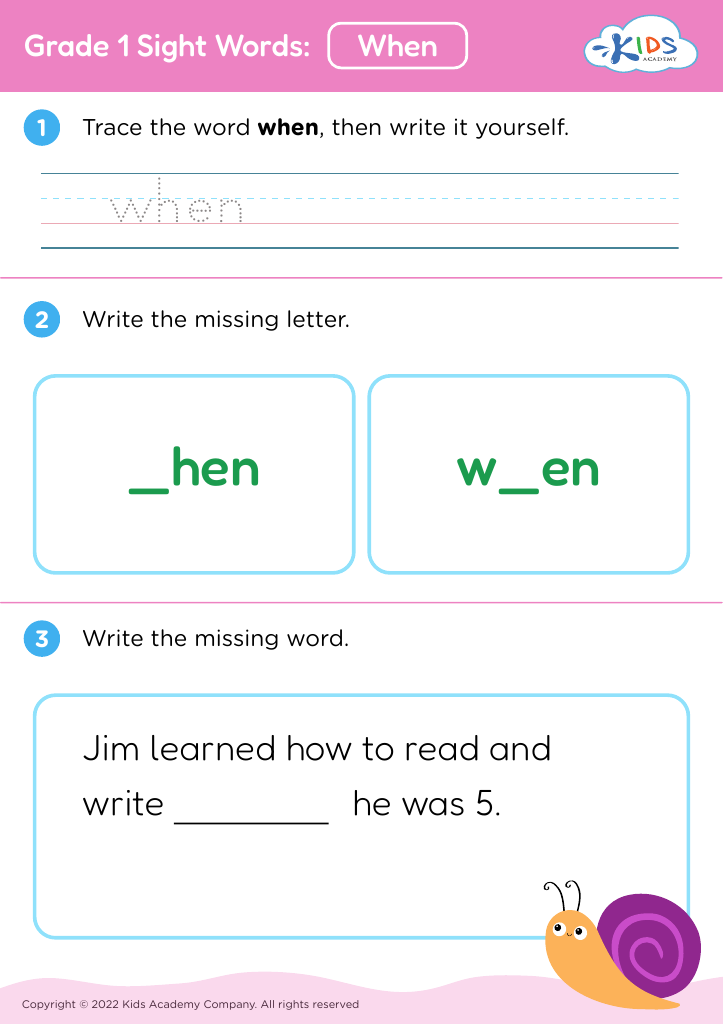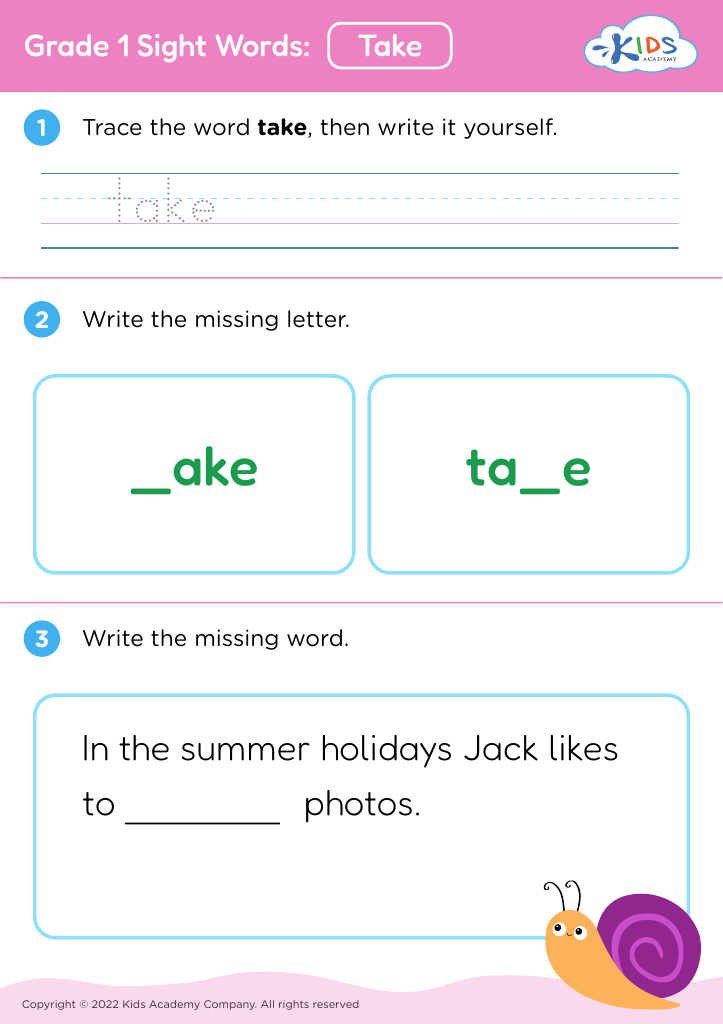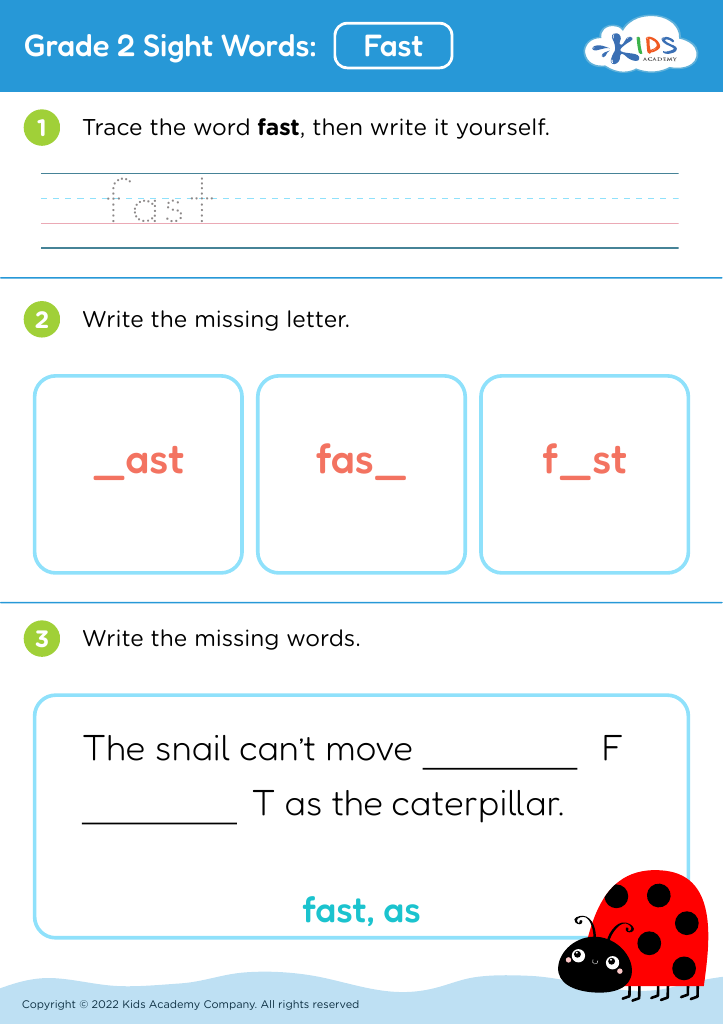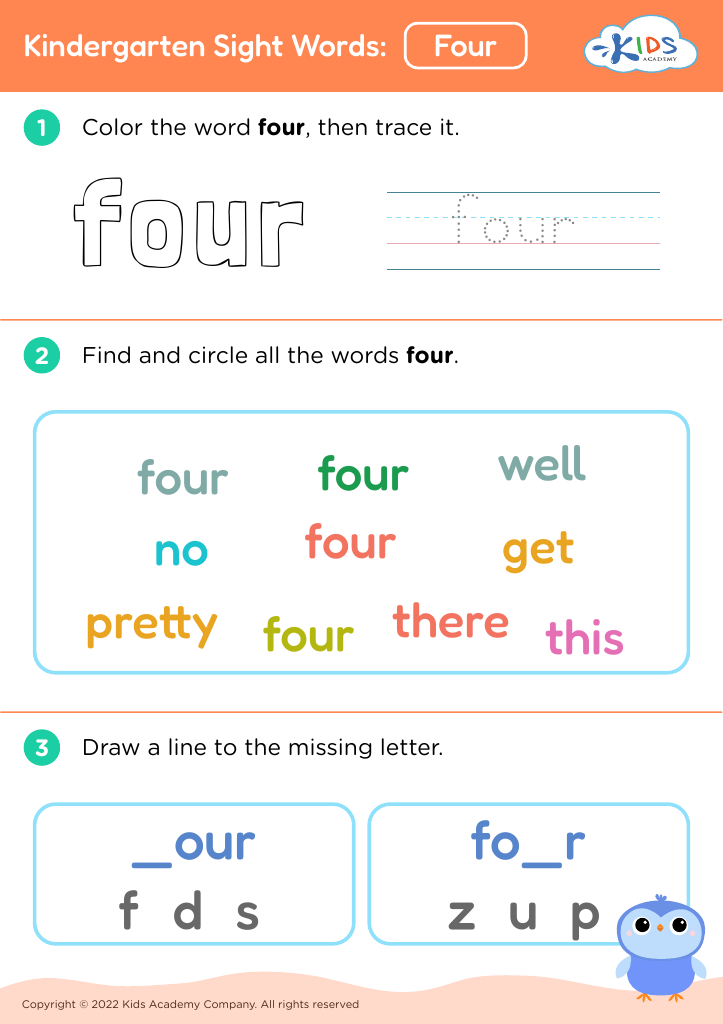Subtraction practice Building Vocabulary Worksheets for Ages 3-7
4 filtered results
-
From - To
Enhance your child's math and language skills with our "Subtraction Practice Building Vocabulary Worksheets for Ages 3-7." Ideal for young learners, these printable worksheets blend essential subtraction exercises with vocabulary-building activities, offering a well-rounded educational experience. Kids will practice subtraction while simultaneously developing their reading and comprehension skills through engaging, age-appropriate content. Designed with vibrant images and simple instructions, these worksheets make learning enjoyable and effective for early learners. Perfect for home or classroom use, these resources promote foundational math proficiency and vocabulary development, setting the stage for academic success in young children.
Subtraction practice and building vocabulary are foundational for cognitive development in children aged 3 to 7. At this formative stage, kids are naturally curious and absorb information rapidly, making it crucial for parents and teachers to focus on both math skills and language development.
Early subtraction skills lay the groundwork for higher-order math concepts. Practicing subtraction helps children understand the principle of taking away and introduces them to the concept of negative space, fostering problem-solving and critical thinking skills. Hands-on activities, like using physical objects for subtraction, can make learning interactive and enjoyable, reinforcing these mathematical concepts.
Meanwhile, developing a robust vocabulary enhances communication skills, improves comprehension, and fosters academic success across various subjects. Children with a strong vocabulary can express their thoughts and feelings more precisely and are generally more confident in social interactions. Moreover, vocabulary acquisition impacts reading skills; children who know more words can read more complex texts and understand them better.
Combining subtraction practice with vocabulary building can make learning seamless. For example, when explaining a subtraction problem, teachers and parents can introduce terms like "minus," "less," and "difference." Engaging children in stories, songs, and games that incorporate both math and new words can turn learning into a multisensory adventure, making it more memorable and enjoyable.




















.jpg)

.jpg)













